Buried in the thick of awards season come the 2024 Royal Philharmonic Society Awards: a glitzy, glamorous and prestigious night hailing the innovation within Britain’s classical music scene. Outside of London for the first time in its history, ‘the biggest night in UK classical music’ (as called by The Sunday Times) headed north. To Manchester, home of the Hallé, Chetham’s School of Music, Bridgewater Hall, the BBC Philharmonic Orchestra and, the host for this evening, a packed Royal Northern College of Music. Though lauding boundary-pushing artists, composers and conductors, its championing of schemes, events, initiatives and “spreading the gospel” of classical music is at its heart. It may not be the Grammys, it may not be the Oscars. It has potential to become an endorsement for how the genre can make a long-lasting and meaningful impression, in spite of ignorant funding cuts – and still has some work to do.
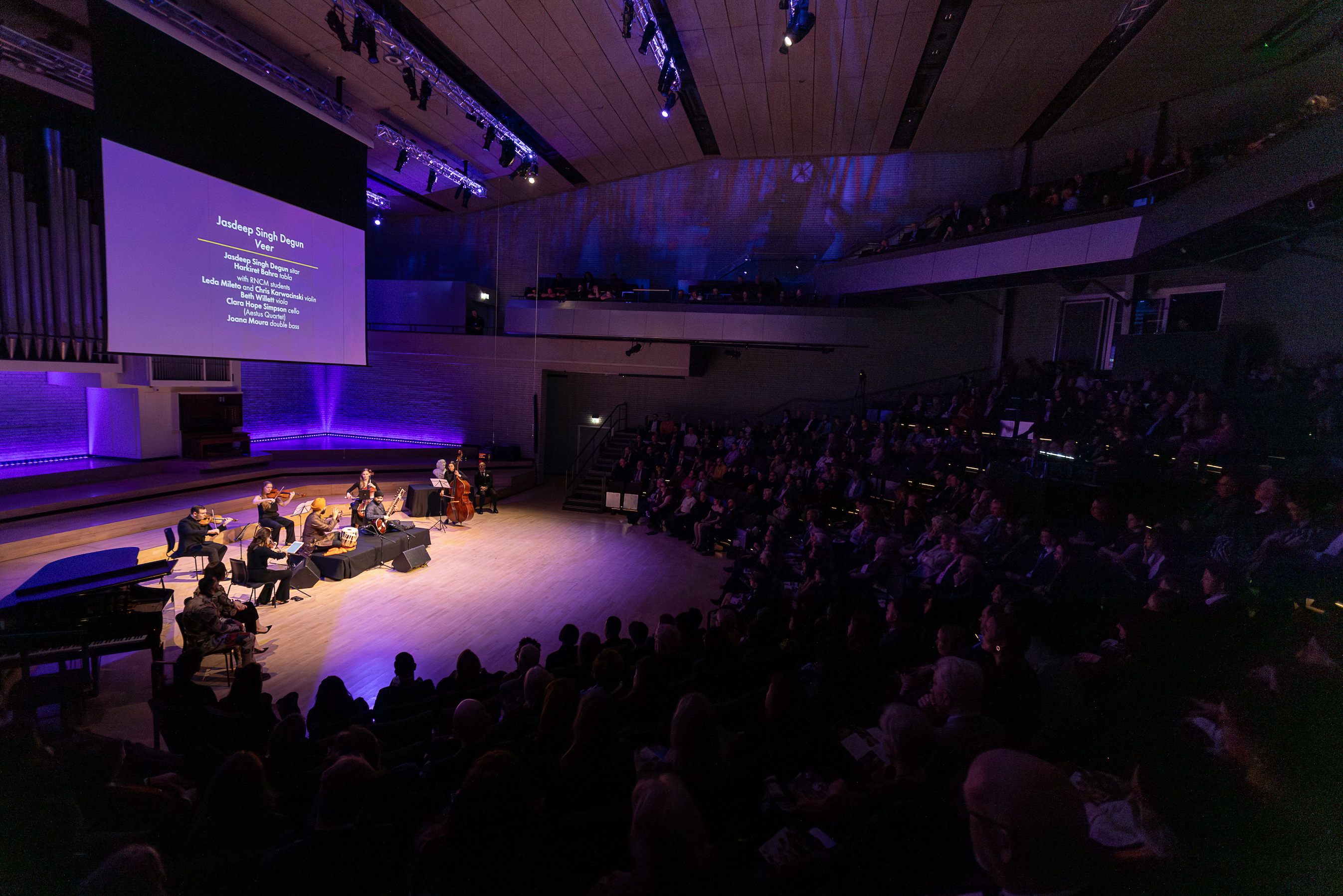
Jasdeep Singh Degun and RNCM students. RPS Awards 2024. (Photo Credit: Robin Clewley)
This was echoed in RPS Chief Executive James Murphy’s address; part speech, part rallying cry: “…classical music often only makes the news when a story breaks about…dwindling provision…tonight…we take the front foot. We get to tell the story…”. And tell it they did. For those questioning how essential Mozart, Beethoven, et al’s work is in the modern age, nominees The Sunday Boys, Re:Sound – Streetwise Opera, Music in Secondary Schools Trust and Olympias Music Foundation’s fearless missions to help those in need, from schoolchildren to the homeless, all shed new light on music’s communal influence.
And it was Sara Lee and the Irene Taylor Trust whose projects within prisons and with those on the fringes of society made the Gamechanger Award one that was 30 years in the making. Much was made about the breadth of their outreach given the scarcity of their resources – proof that systemic adversity can be overridden by defiance and willpower. Clare Johnson and Drake Music Scotland’s daring team-up with the Eegeru ensemble from Kazakhstan, not only empowering disabled musicians but dispelling geographical borders, was presented with the Impact Award for such a trailblazing collaboration. Classical music might be presented as the epitome of exclusivity but for the majority it’s a crucial lifeline. A thirty-minute workshop or a community choir practice might not hold as much weight as performing at the Royal Albert Hall, but how it can put a hop in someone’s step makes those efforts truly precious. Where does virtuosity get you that selflessness can’t?
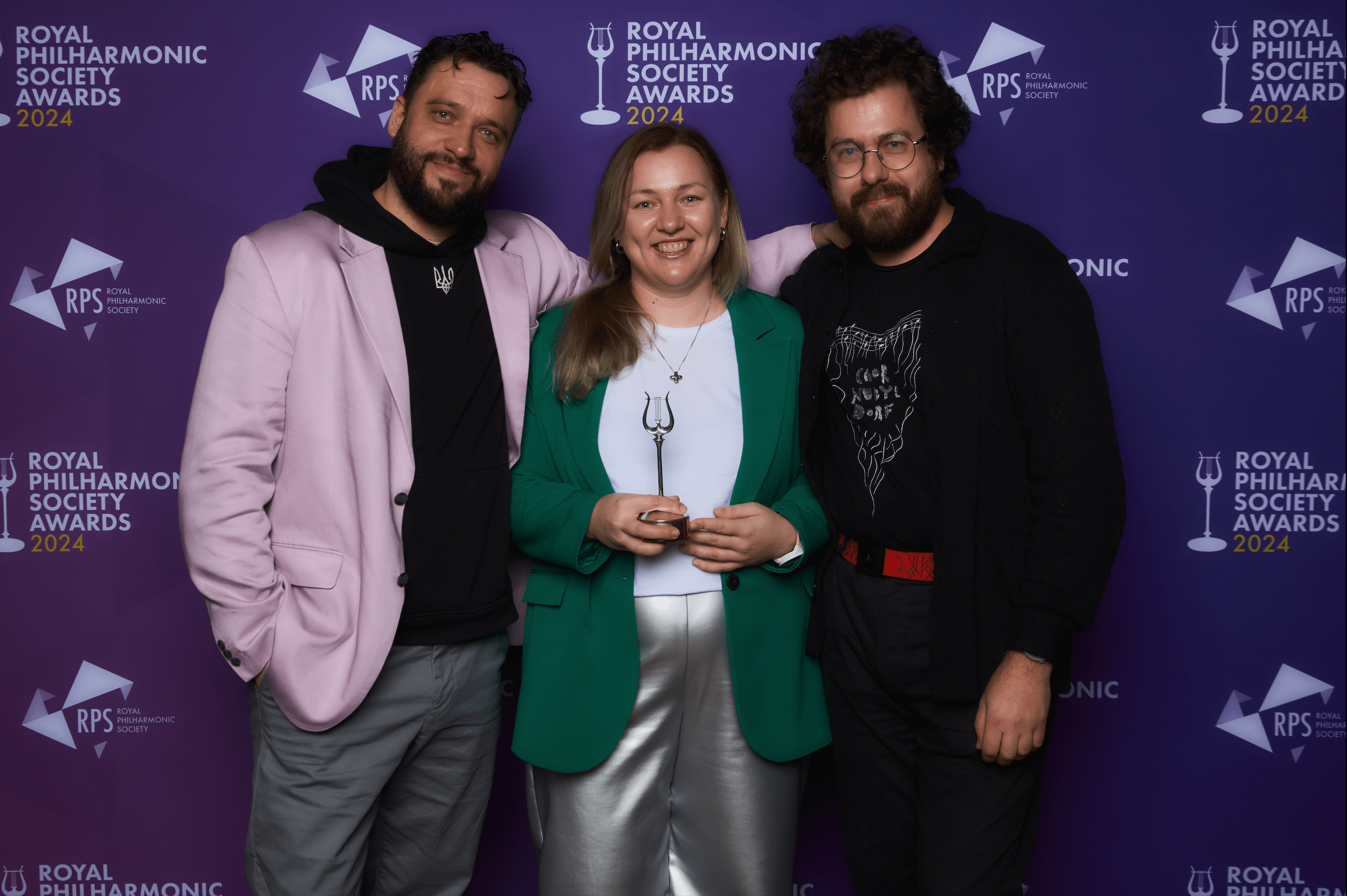
Roman Grigoriv, Olga Diatel and Illia Razumeiko. RPS Awards 2024. (Photo Credit: Lee Isserow, Vessel Studios)
The presentation of the Opera and Music Theatre Award carried a weight of poignancy. Given to Ukrainian composers Illia Razumeiko and Roman Grygoriv for their work Chornobyldorf, an immense and harrowingly prophetic piece (shockingly written two years prior to the Russian invasion) the duo flew from Ukraine specially for the evening. Embodying the value of culture when the world is at its bleakest, it’s an opera whose avant-garde elements are as bewildering as they are visceral. It’s a testament to the writers of Chornobyldorf that their speech was so well balanced: rightly vocalising their disgust at Tchaikovsky being played on top of the ruin in Mariupol whilst also humouring the audience with stories of passport control and encountering drunk, half-naked scousers singing Yellow Submarine during their tour of the UK.
As someone who’s not an avid operagoer, entering the awards blind has opened up a new wormhole for me. Brief glimpses of the BBC Proms when channel hopping tend to make up my annual dosage of the medium. However, even fleeting snippets of Kaija Saariaho’s ‘Innocence’, which gave her a posthumous win for Large-Scale Composition, had me mesmerised. Dissecting the aftermath of a school shooting, its visually arresting set design and gripping, tragically modern premise hooked me and crushed my narrow-minded preconception about the limitations of this sort of storytelling. Having since watched it in its beautifully constructed, gorgeously unsettling entirety, I mirror the panel’s judgement.
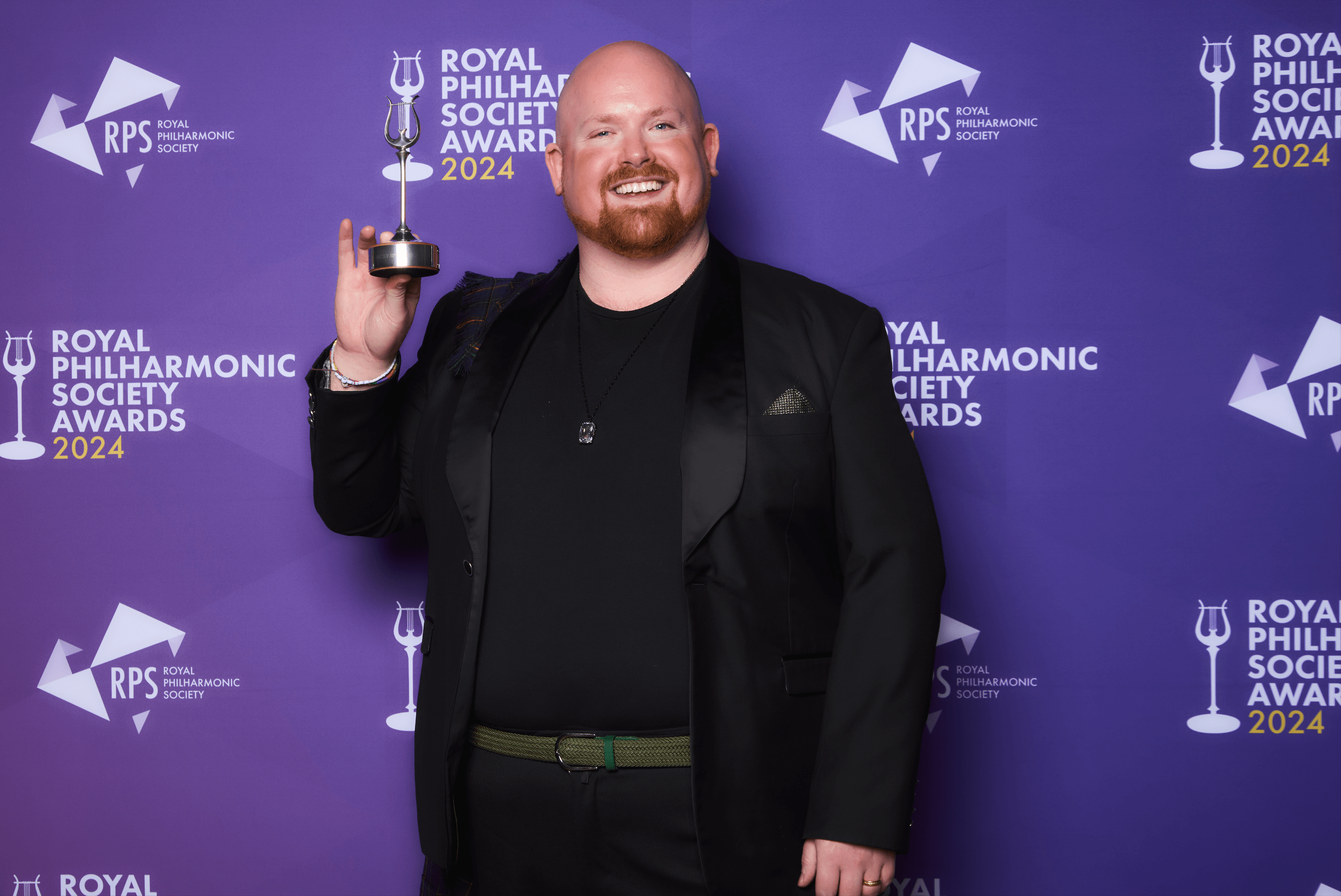
Nicky Spence. RPS Awards 2024 (Photo Credit: Lee Isserow, Vessel Studios)
Though it was a rather quaint affair, the room erupted when Nicky Spence’s name was read out for the Singer Award. One word in and the room was in hysterics. A shot in the arm for the classical scene, Nicky’s old-school, quick-thinking rapport with the fanbase was delightful. It takes someone special to turn the RNCM into the Palladium. To bring a charming blend of comic relief and genuine, tearful thanks to his nearest and dearest. Seeing Leeds-based artist Jasdeep Singh Depun become the first sitar player to win an RPS award for his jubilant reimagination of Monteverdi’s Orpheus and his vibrant, expansive collaborations on his debut album ‘Anomaly’ felt like a step in the right direction. Watching him close out the show with a transfixing performance alongside students from the Royal Northern College of Music flew the flag for music as a shared experience. In his crowning moment he chose to give others the spotlight.
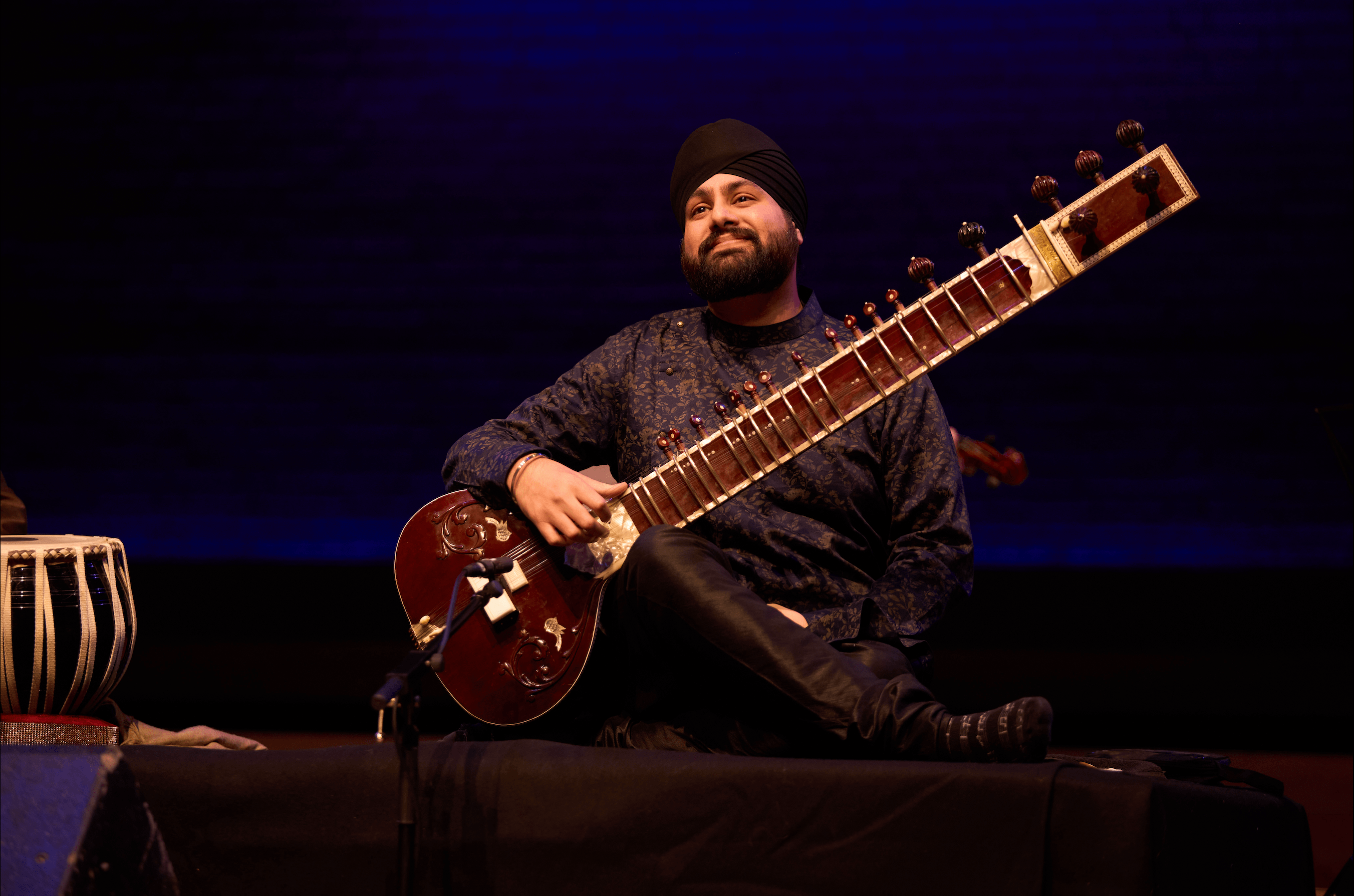
Jasdeep Singh Degun. RPS Awards 2024. (Photo Credit: Robin Clewley)
The awards made an effort this year to change the image of the traditional classical sector by moving location, selling tickets for £10, having a diverse selection of nominees, and actively seeking a new audience demographic. I couldn’t help but notice that the attendees were still white, middle to upper class and middle aged or older – I, at 23, must have been one of if not the youngest person there! This phrase on the RPS website made me question some of the results – “…we strive for everything we do to reflect the range of people who make classical music today in a diverse, multicultural society…”. If that was a priority for the society, why were 5 out of the 6 individual award winners white and only 2 out of 6 female? What good does it do having a broad spectrum of nominees only to revert to old habits?
Award shows are inherently silly – how can you possibly compare the work that, say, the institution of the BBC Singers and the wickedly inventive Riot Ensemble achieved over the last 12 months? What awards shows are fantastic at is advertising. So getting eyeballs on the likes of the Irene Taylor Trust, Jasdeep Singh Degun and Drake Music Scotland makes the night worth it. Front and centre was always the music and the impact it’s made. An impact that changed my perception of the genre. If only these were the stories that were printed in the media.
Filed under: Music
Tagged with: awards, awards ceremony, classical music, diverse, impactful, Inspiring, music, performance, Royal Northern College of Music, Royal Philharmonic Society Awards 2024, talent, talented
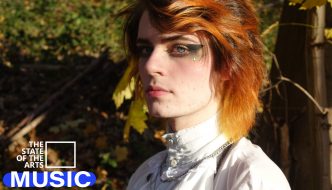

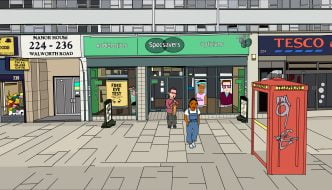
Comments